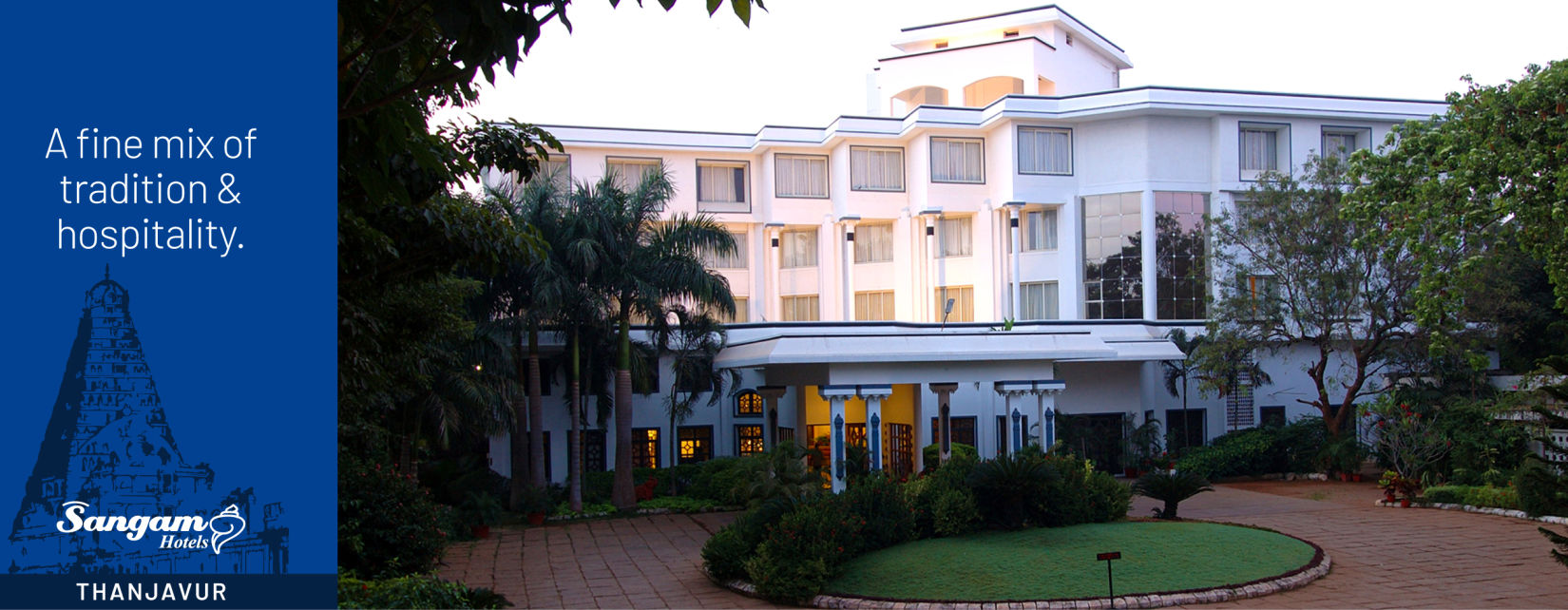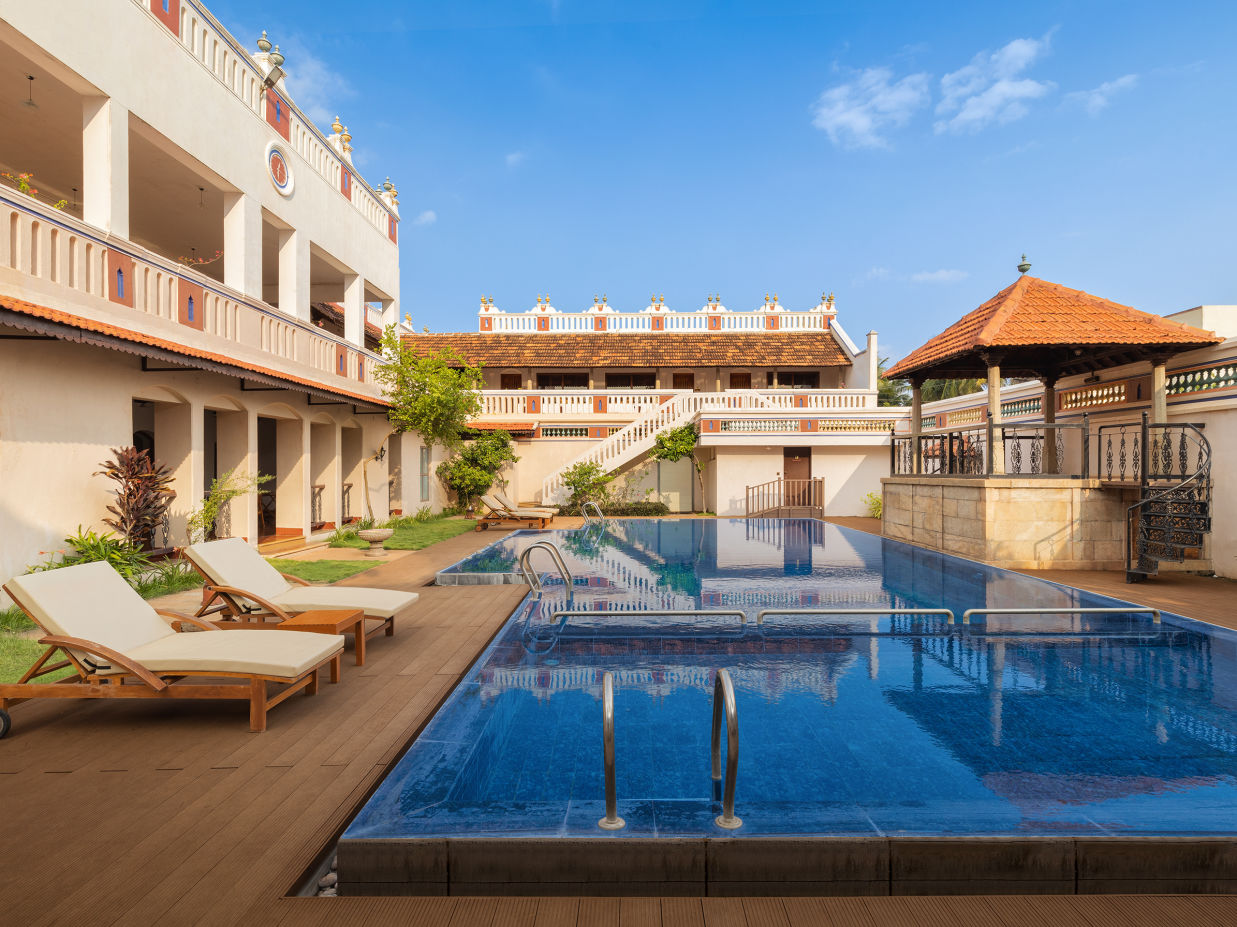About Sangam Hotels

The Sangam group of hotels was established in 1975 and has embedded itself in the region for our four decades. In the cities of Trichy, Madurai and Thanjavur, Sangam Hotels offers luxurious stay with a touch of home. The group expanded into heritage tourism in 2008 by converting a palatial Chettinad house into a luxury heritage resort – Chidambara Vilas. Sangam group has established itself as the preferred location of stay in these cities for many visitors – a relation built on the principle of trust developed over the years between the travel fraternity and the Sangam team. Sangam builds on its brand name by constantly innovating with the times, upgrading facilities and offering the latest features that travelers desire.











